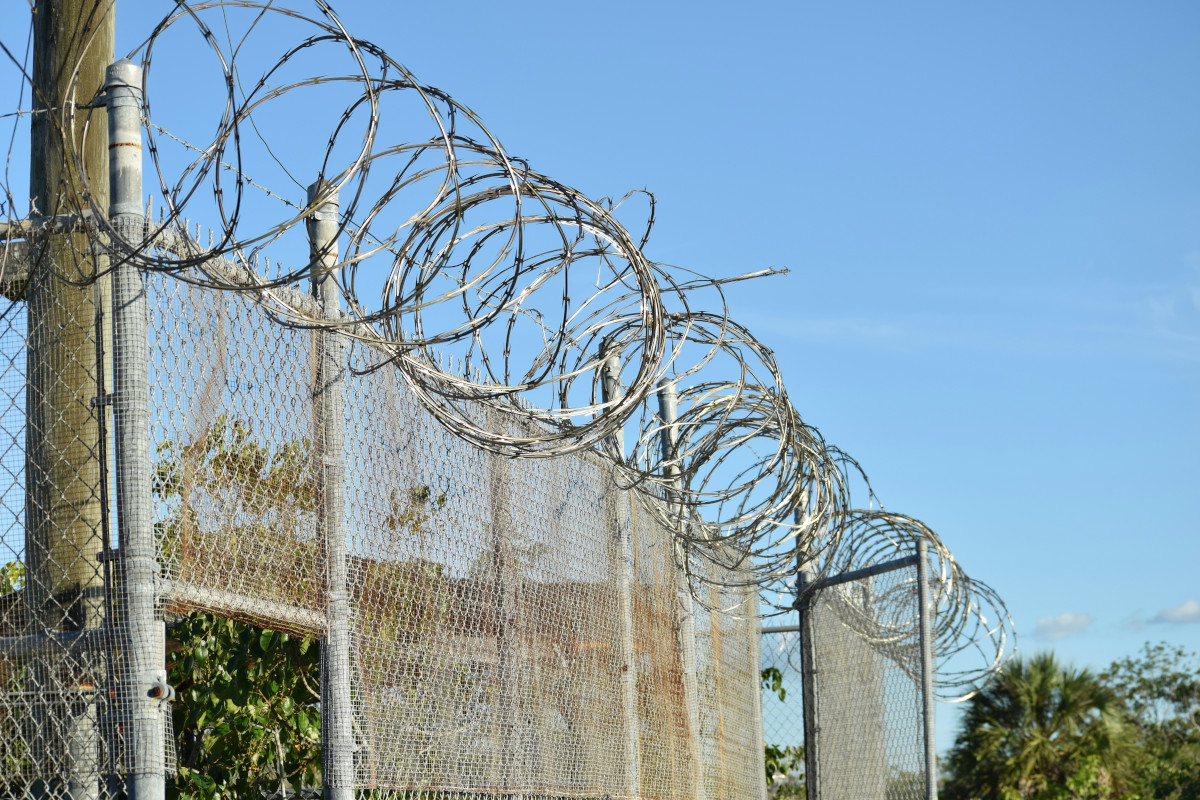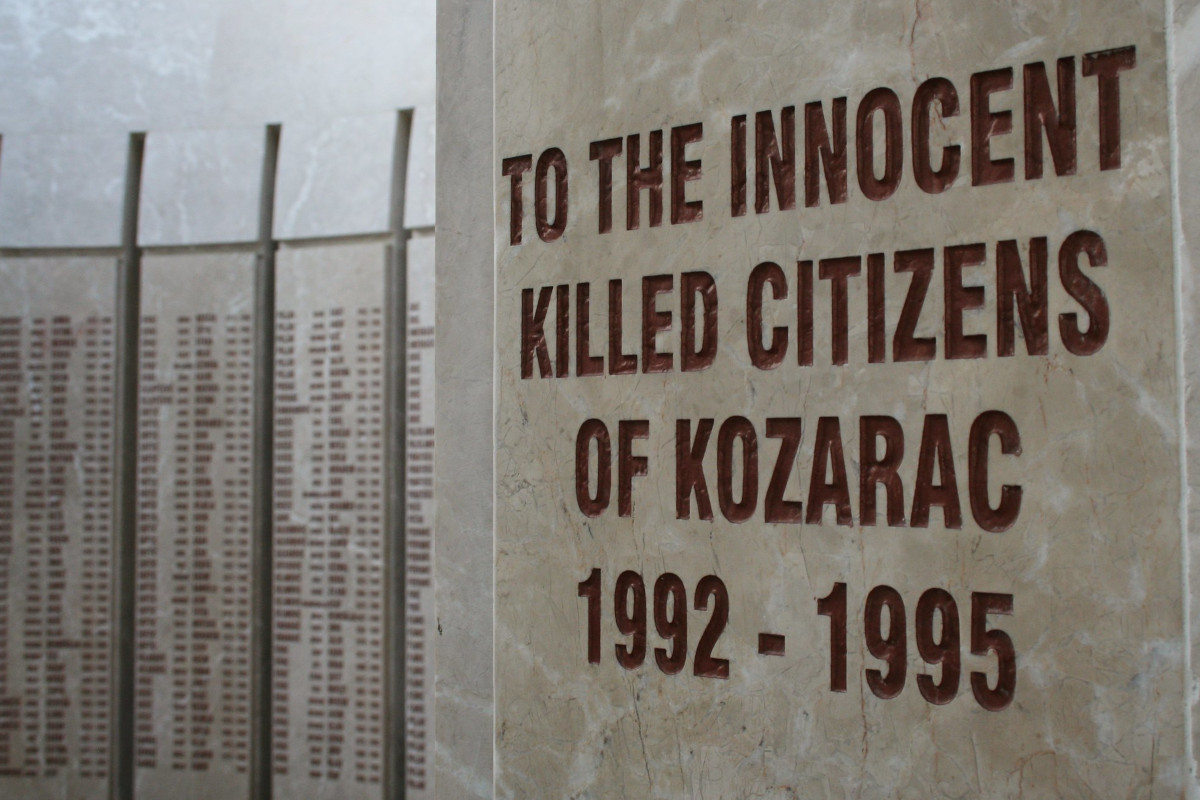EU wants to deport people to countries with which they have no connection
Topic
Country/Region
22 September 2025
A German diplomatic cable obtained by Statewatch shows that 13 member states would like to be able to deport people to any country they wish – even if the person has no connection to it. The demands have been accommodated in the most recent version of the proposed law on “safe third countries.” The cable also shows plans to remove the “suspensive effect” of appeals against deportation, while refugee resettlement pledges from member states are lower than ever.
Support our work: become a Friend of Statewatch from as little as £1/€1 per month.
 European Commissioner for Internal Affairs and Migration, Magnus Brunner, meets officials from Greece's ruling New Democracy party. Image: New Democracy, CC BY-NC 2.0
European Commissioner for Internal Affairs and Migration, Magnus Brunner, meets officials from Greece's ruling New Democracy party. Image: New Democracy, CC BY-NC 2.0
Undermining rights, increasing deportations
EU member states are discussing a raft of new laws designed to speed up and increase deportations.
Proposals from the European Commission are premised on undermining rights and removing safeguards – but some member states want to go even further.
A German diplomatic cable obtained by Statewatch (pdf) summarises discussions at the July 11 meeting of the Council of the EU’s Asylum Working Party.
There, EU member state and Commission representatives discussed proposals to alter the “safe third country” concept and on drawing up a common EU list of “safe” countries, as well as the issue of refugee resettlement.
“Euro-Rwanda”
The proposal to change the “safe third country” rules is expected to facilitate agreements between EU member states and non-EU states, under which the latter would become responsible for examining asylum applications.
Steve Peers, a professor of EU law, refers to this as the ‘Euro-Rwanda’ plan, after the UK’s failed refugee outsourcing deal with Rwanda.
Establishing such agreements requires changes to EU legislation, including adopting national or EU-level lists of ‘safe third countries’ to which people can ostensibly be deported without the risk of violating non-refoulement.
Many have cast doubt on the EU’s definition of “safe”.
These proposals come on top of another published earlier this year, the “deportation Regulation,” that seeks to enable deportation camps in non-EU states.
These are euphemistically referred to by EU institutions and member states as “return hubs”. The proposal is being discussed in the Council’s Working Party on Integration, Migration and Expulsion.
Three key topics emerge from those covered in the diplomatic cable:
- removing or amending the “connection criteria” for deportations;
- removing the automatic “suspensive effect” of appeals against deportations orders; and
- member states’ low refugee resettlement pledges.
Connection criteria
The “connection criteria” in EU law means people facing deportation must be sent to a state with which they have a connection – generally where they were born or are citizens.
Member states consider the criteria as one of the biggest administrative hurdles to deporting more people.
The European Commission has determined the criteria is not required under international law. It proposes allowing application of the “safe third country” concept if any one of three conditions are met:
there is a connection between the applicant and the third country concerned, on the basis of which it would be reasonable for him or her to go to that country;
the applicant has transited through the third country concerned;
there is an agreement or an arrangement with the third country concerned requiring the examination of the merits of the requests for effective protection made by applicants subject to that agreement or arrangement.
The cable notes some discussion in the Asylum Working Party that family ties to a country could also be included.
13 member states in favour, now the Council too
While most member states were on board with the Commission’s proposals, 13 member states support deleting the connection criteria altogether: Austria, Bulgaria, Czechia, Cyprus, Finland, Germany, Greece, Hungary, Italy, Malta, the Netherlands, Poland and Slovakia.
According to the cable, the Commission highlighted that doing so would “limit the ‘pool’ of possible cooperation countries.”
Portugal, Spain and France were reportedly critical of the proposed amendments, while Ireland said it was open to the proposals if the Council agreed. Belgium, Sweden and Estonia were apparently sceptical.
A draft text of the safe third country proposal published earlier this month by the Agence Europe news agency shows that the Danish presidency of the Council of the EU has accommodated the wishes to effectively do away with enforcement of the connection criteria.
The document, seen by Statewatch, says:
…a broad majority of delegations expressed support for both the complete removal of the current connection criterion in the (Asylum Procedure Regulation) as well as the Commission’s proposed alternatives to that requirement…
The presidency proposed leaving both options open, giving member states wide latitude to interpret the meaning of “connection”.
Suspensive effect of appeals
The “suspensive effect” of appeals means that member states cannot deport someone if they still have an appeal in process against it.
Various member states have argued automatic suspensions should be removed to speed up deportations, and the UK has for years been forcibly removing people through the “deport now, appeal later” scheme, which was recently expanded.
A suspensive effect is typically applied automatically. Discussions in the Asylum Working Party in July revolved around whether it should instead only apply if requested by the person facing deportation.
This question is particularly important as the new “safe third country” system the EU is pursuing could see a person’s application rejected on the grounds of having come from a “safe” country, rather than looking at whether or how the person may be in danger if sent back there.
Appeals still possible
The Commission emphasised to member states in July that abolishing the automatic suspensive effect would not mean they could deport people immediately, as there would still be a period of time in which the applicant could request an appeal.
The cable says the issue was a “sticking point” at the discussions, with a majority of member states supporting its removal, but others resisting.
France and Slovenia reportedly expressed concern over what happens if someone is removed and then wins their main appeal. Romania raised concerns that abolishing the principle could endanger people.
It appears that member states want more clarity on what the Commission is proposing the new system would look like in the absence of an automatic suspensive effect.
In its compromise, the Danish presidency proposes wording that would remove the automatic suspensive effect in cases where an asylum application has been rejected prima facie based on the application of the safe third country principle.
There would be an exemption in cases presenting a possible risk of non-refoulement.
That said, the Presidency is also of the view that, when it comes to safe third countries, “any refoulement claim with regard to removal to the safe third country is likely to be non-arguable.”
Delegations in the IMEX working party have been given the job of addressing this issue through provisions in the deportation Regulation.
Refugee resettlement
In July, the Asylum Working Party also discussed member state contributions to the Union Resettlement and Humanitarian Admission Framework, the EU’s framework for resettling refugees from outside the bloc.
The Commission noted that only nine member states have so far made pledges to resettle people, and those pledges are for fewer people than the last period.
Romania, for example, has committed to accept 300 Sudanese, South Sudanese and Eritrean refugees who are currently in Kenya or Egypt.
The Commission reportedly urged member states to consider resettling more people, arguing that it is important the EU be seen to be doing its share.
Member states’ lack of enthusiasm for resettling refugees has proven to be a longstanding issue.
Other details from the compromise texts
Alongside the latest version of the safe third country (STC) proposal, Agence Europe also published the latest compromise text of the safe countries of origin (SCO) proposal.
A number of important amendments are contained in the two documents:
- Where previous proposals had explicit exemptions protecting unaccompanied minors from deportation, the presidency, believing that the desired deterrence effect “would be most effectively reinforced by a provision that applies, in principle, to all asylum applicants” has proposed to remove that explicit protection.
- EU accession candidates “should be considered as safe countries of origin” at the EU-level, though “due account should be taken of the fact that the situation in an EU candidate country could change”.
- Bangladesh, Colombia, Egypt, India, Morocco, Tunisia and Kosovo “satisfy the criteria” to be considered SCOs, says the presidency, as there is “in general, no risk of persecution or serious harm.” This does not preclude member states keeping their own lists or the EU-level list being expanded.
- Proposed amendments allow the possibility for a country to continue to be designated an STC even if the security situation declines in specific regions of the country. In such cases, “exceptions” can be made for specific regions or “clearly identifiable categories of persons” who may be endangered. The ‘whole vs part’ issue is a particularly contentious one as relates both STCs and SCOs. Member states have in the past attempted to add countries to their SCO list despite conflict in parts of the country. These efforts have been knocked back by the European Court of Justice.
- The Presidency has proposed STC schemes should only mandate third countries examine asylum requests “if such requests are made” – that is, an individual removed from the EU to a “safe” country would be obliged to file a request there. The proposal also leaves member states free to decide the process for providing receiving countries with information about a deportee’s previous asylum application(s).
- The Presidency proposes that, in cases where agreements are made between an STC and both the EU and an individual member state, the former should not limit the latter in making use of “the relevant provisions of both type of agreements”.
- Member states will be afforded flexibility on when they are required to notify the EU of an agreement with a third country.
Documentation
- Sitzung der RAG Asyl am 11.07 .2025 (Hauptstadtbericht) (15 July 2025, pdf)
Our work is only possible with your support.
Become a Friend of Statewatch from as little as £1/€1 per month.
Further reading

EU deportation law must be rejected
The EU's proposed deportation law must be rejected by governments and MEPs, says a statement signed by more than 300 organisations from across Europe and beyond. The proposed law, which was published in March this year, would facilitate massive rights violations. It includes provisions for offshore deportation centres, the elimination of safeguards and increased detention periods, amongst other things.

Border externalisation: Deportation law negotiations, EU budget proposals, projects in Africa
The latest issue of our bulletin on border externalisation, Outsourcing Borders, is out now. Including: updates on EU deportation law negotiations; EU budget proposals and external migration control; details on EU projects designed to increase deportations and limit "irregular remigration"; and much more.

Longstanding failings in police databases likely to worsen under new deportation law
The EU’s new deportation law will expand a database that has long led to abuses and rights violations, particularly in relation to the right to data protection.
Spotted an error? If you've spotted a problem with this page, just click once to let us know.
